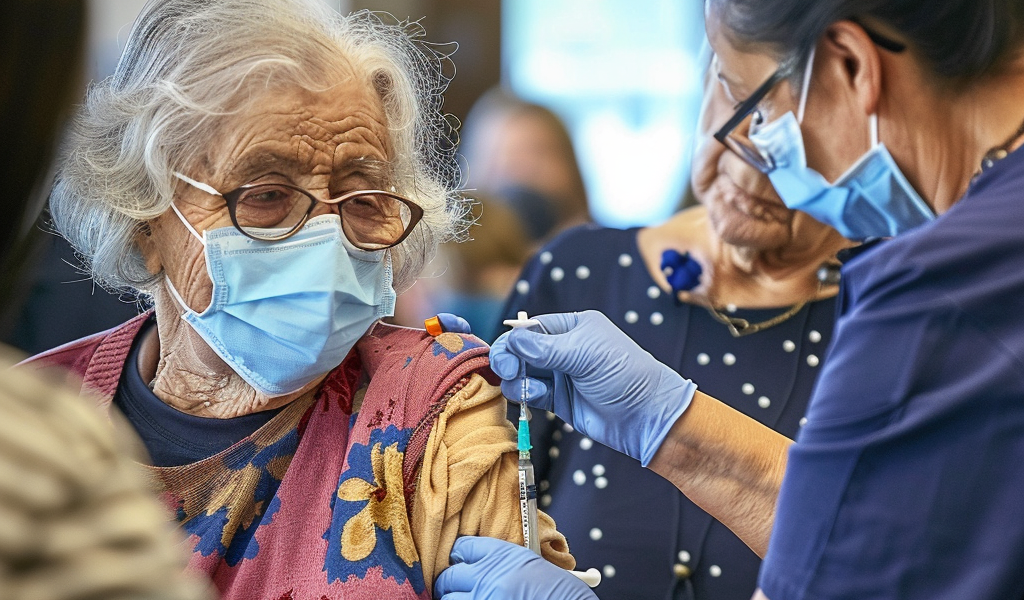As spring 2024 approaches, the Centers for Disease Control and Prevention (CDC) reminds Americans that the risks associated with COVID-19 persist, especially for adults aged 65 and older. The CDC recommends that this age group receive an additional COVID-19 vaccine, updated to protect against a recently dominant variant and effective against the current dominant strain.
Older adults are particularly vulnerable to COVID-19, with significantly worse outcomes compared to other age groups. The average death rate from COVID-19 in January 2024 was just under 3 in 100,000 people for all ages, but for those aged 65 to 74, it was higher, about 5 for every 100,000. For people 75 and older, the rate jumped to nearly 30 in 100,000.
Given the increased risk associated with age, the CDC’s recommendation for an additional COVID-19 vaccine for adults aged 65 and older is crucial. This recommendation comes as a result of the ongoing threat posed by COVID-19, despite the end of the public health emergency declared in spring 2023.
As a geriatrician who exclusively cares for people over 65 years of age, I have been asked whether another COVID-19 shot is necessary. In early 2024, the answer is a resounding yes. The spring shot is still essential for the 65 and up age group, even for those who received a COVID-19 shot last fall.
It’s important to note that the additional COVID-19 vaccine is covered by Medicare, emphasizing the significance of protecting older adults from the heightened risks associated with the disease. The updated vaccine aims to provide enhanced protection against the latest variant and the current dominant strain of COVID-19.
Looking back at the timeline of COVID-19 and its impact on society, the spring season has been closely associated with significant developments. From the initial nationwide emergency declaration in spring 2020 to the vaccine rollout and subsequent changes in public health guidelines, each spring has brought about crucial shifts in the approach to managing the pandemic.
Despite the progress made in vaccination rates, the CDC’s recommendation for an additional COVID-19 vaccine for adults aged 65 and older underscores the ongoing importance of safeguarding vulnerable populations. The heightened risks faced by older adults necessitate continued vigilance and proactive measures to mitigate the impact of COVID-19.





